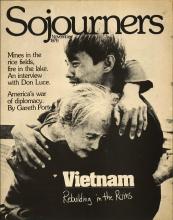Last month we saw how the New Testament makes family the basis of all relationships in the kingdom of God. In the early church people related to each other primarily as brothers and sisters, equal before God as “brethren” of Jesus Christ. Other relationships were secondary within the Christian social structure -- elder/younger, male/female, master/slave, etc. The normal substructure of authority, leadership, and organization, made up of husbands/wives, parents/children, elders/ younger, grew up within that primary context. Even the male/female polarization was drawn together in common familyhood in Christ, a remarkable achievement for that age.
A basic purpose of “family” in any society is to raise children, to bring the immature into a place of maturity. For environmental reasons in the primitive world the extended family system was the one that worked well; children were raised not to go away, but to become peers and co-elders with their parents, taking their place in the leadership in the clan as they grew mature. Authority was shared among elders in a healthy extended family; the system was not a pyramid with one person at the top. The oldest one became respected and valued for advice; he was sometimes seen as a symbol of the tradition, but there had to be a shared leadership if peace was to prevail.
The extended family unit with such a shared leadership structure was the model that the early church took in shaping its life as community. It was not a religious model but a social one. It was an altered social model, however, and not the natural one. Jesus had transformed the terms of the family relationships, and the first church accepted this as a fact of their life.
In the early church, the young -- those immature in the faith as well as those born into the fellowship -- were raised to maturity by those who were their older brothers and sisters.
Read the Full Article
